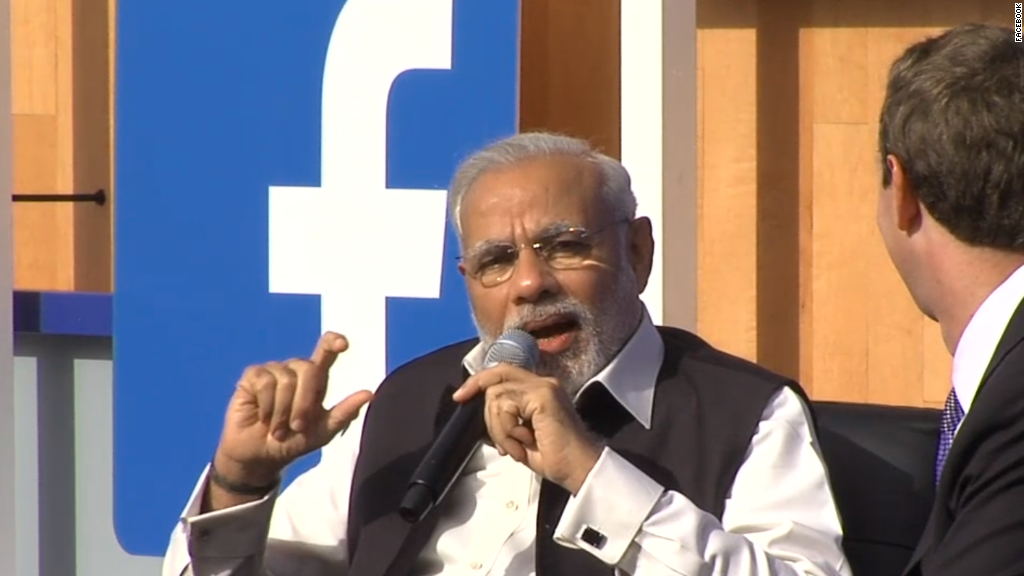
Facebook's campaign to offer free Internet access to hundreds of millions of people in India is at risk of backfiring.
The company urged its users to express their support for the stripped-down "Free Basics" web service by contacting the Telecom Regulatory Authority of India.
Nearly two million people have done just that. But the regulator, which is considering whether the service is legal, says the messages of support are not helpful.
It says the vast majority are identical responses that "do not address the specific questions" raised by the agency about net neutrality.
The regulator has asked Facebook and its users to submit more substantive messages.
Facebook said it revised the language to address the specifics. "We are aiming to give people in India a voice in this debate and an opportunity to support Free Basics," a spokesman at Facebook said on Monday.
The Facebook (FB) campaign comes after TRAI asked Reliance Communications, a large telecoms firm, to stop providing "Free Basics" pending its ruling.
"Free Basics," formerly known as Internet.org, offers limited Internet access to consumers who cannot afford a broadband connection or smartphone data plan.
The service provides information on health, travel, jobs and local government. By offering a limited number of websites and services, and transmitting as little data as possible, costs are minimized. Facebook is one of the apps included in the service. Others include AccuWeather, Ask.com, Baby Center, Bing, Dictionary.com and Wikipedia, among a handful of others.
Related: Net neutrality explained, once & for all
Critics say the program violates the central tenets of net neutrality, which stipulate that all Internet content and users should be treated equally. They also say the program, billed as altruistic, too closely mirrors Facebook's commercial aims.
CEO Mark Zuckerberg has pushed back against these critics, arguing that the "Free Basics" platform is open to all software developers, has no advertisements and will help less fortunate users escape poverty.
"Instead of wanting to give people access to some basic internet services for free, critics of the program continue to spread false claims -- even if that means leaving behind a billion people," the Facebook CEO wrote recently in the Times of India. "Who could possibly be against this?"
Related: Mark Zuckerberg has personally answered Facebook's Indian critics
Internet activists, meanwhile, have continued to press their case against "Free Basics."
Mahesh Murthy, a prominent Indian venture capitalist, has described the program as "imperialism and the East India Company all over again," carried out under the guise of "digital equality."
"What Facebook wants is our less fortunate brothers and sisters should be able to poke each other and play Candy Crush, but not be able to look up a fact on Google, or learn something on Khan Academy or sell their produce on a commodity market or even search for a job," he said.
Critics of "Free Basics" are also lobbying the regulator, with roughly 500,000 comments generated in forums like "Save the Internet." TRAI is expected to release its official position on "differential pricing" in the coming weeks.
India has one of the world's top tech scenes, where skilled engineers churn out apps. At the same time, hundreds of millions of Indians don't have access to the Internet, even on a basic phone. Getting these users online is a top priority for Silicon Valley firms, who also hope that Indians will use their services.

